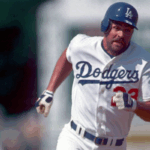Throughout history, certain words have resonated with generations, shaping ideologies, motivating change, and inspiring people to reach for greatness. The quotes from historical figures carry immense power because they often capture the essence of their time, beliefs, and vision. Whether spoken in moments of brilliance, wisdom, or strife, these words continue to inspire, challenge, and provoke thought today.
In this article, we explore ten famous quotes from well-known historical figures that have transcended their original contexts to become timeless reflections on human nature, leadership, and life itself.
1. “I think, therefore I am.” — René Descartes
René Descartes, the French philosopher and mathematician, is often called the “father of modern philosophy.” His famous quote, “Cogito, ergo sum” in Latin, is a foundational principle in the study of epistemology, the theory of knowledge. Descartes formulated this idea as a way to ground certainty in a world filled with doubt. In his work Meditations on First Philosophy (1641), he reasoned that even if all else could be doubted, the very act of doubting proved the existence of the self as a thinking being.
This quote is a profound declaration of the importance of consciousness and self-awareness. It emphasizes the undeniable certainty of one’s own existence as long as one is thinking. Descartes’ words have not only influenced philosophy but have also become central to debates on consciousness and artificial intelligence in the modern era.
2. “The only thing we have to fear is fear itself.” — Franklin D. Roosevelt
This quote comes from Franklin D. Roosevelt’s inaugural speech on March 4, 1933, during the height of the Great Depression in the United States. In his address, Roosevelt sought to calm the American public, who were gripped by economic turmoil and anxiety. His statement, “The only thing we have to fear is fear itself,” was intended to reassure citizens that panic and fear of the unknown would only worsen their plight, and that courage and determination would help them overcome adversity.
Roosevelt’s words have endured as a powerful reminder of how fear can paralyze progress. His speech not only motivated a nation to face economic hardship but also set the tone for his New Deal policies, which aimed to provide relief, recovery, and reform during one of the darkest times in American history.
3. “Injustice anywhere is a threat to justice everywhere.” — Martin Luther King Jr.
Dr. Martin Luther King Jr. is synonymous with the struggle for civil rights and equality in the United States. His commitment to nonviolent protest and social justice has left a lasting legacy. The quote, “Injustice anywhere is a threat to justice everywhere,” comes from his Letter from Birmingham Jail (1963), where he eloquently argued against the complacency of those who preferred “order” over justice.
This statement has become a cornerstone of social justice movements across the world, reminding us that the fight for equality and human rights cannot be confined to any single group or community. It calls for solidarity in the face of injustice, as any instance of unfairness or oppression undermines the collective pursuit of a just society.
4. “The unexamined life is not worth living.” — Socrates
Socrates, the ancient Greek philosopher, is one of the most influential figures in Western philosophy. Known for his method of questioning and dialogue, Socrates believed that true wisdom came from self-examination and introspection. His declaration, “The unexamined life is not worth living,” was made during his trial in 399 BCE, when he was sentenced to death for impiety and corrupting the youth of Athens.
This quote encourages individuals to reflect critically on their values, choices, and actions. Socrates’ philosophy suggests that living without questioning the nature of existence, morality, and truth leads to a life devoid of purpose. It’s a call for personal responsibility and intellectual growth, a challenge to live with intention and self-awareness.
5. “Give me liberty, or give me death!” — Patrick Henry
This fiery declaration was made by Patrick Henry, an American Revolutionary leader, in a speech delivered to the Virginia Convention in 1775. Henry’s impassioned words encapsulated the growing sentiment among American colonists who were becoming increasingly frustrated with British tyranny. The phrase “Give me liberty, or give me death!” was a call to arms, urging his fellow colonists to resist oppression at any cost.
Patrick Henry’s quote symbolizes the power of freedom and the willingness to fight for it, even if it means risking one’s life. The sentiment is a defining moment in the history of the American Revolution, and it has since become a rallying cry for those who champion individual rights and freedoms.
6. “An eye for an eye only ends up making the whole world blind.” — Mahatma Gandhi
Mahatma Gandhi was a leader who believed in the power of nonviolent resistance to achieve social and political change. His quote, “An eye for an eye only ends up making the whole world blind,” is a profound critique of the cycle of vengeance and retribution that perpetuates violence. Gandhi’s philosophy of nonviolence, or ahimsa, was central to his leadership in India’s struggle for independence from British rule.
This quote serves as a timeless reminder of the futility of revenge. It encourages forgiveness, understanding, and reconciliation as the means to break the cycle of hatred and violence. Gandhi’s message continues to resonate globally, urging people to choose compassion over conflict.
7. “That’s one small step for [a] man, one giant leap for mankind.” — Neil Armstrong
Neil Armstrong’s iconic words were spoken as he became the first human to step foot on the moon on July 20, 1969, during NASA’s Apollo 11 mission. His statement, “That’s one small step for [a] man, one giant leap for mankind,” marked a monumental achievement in human history—the successful landing of a human being on another celestial body.
Armstrong’s quote is not just about the personal triumph of stepping onto the moon, but a symbolic expression of humanity’s boundless potential for exploration and discovery. The moment captured the imagination of millions and continues to inspire scientific innovation and the pursuit of knowledge beyond the Earth.
8. “History is written by the victors.” — Winston Churchill
Winston Churchill, the British Prime Minister during World War II, is remembered for his leadership and resolve in the face of adversity. While there’s some debate over whether he actually coined this phrase, the sentiment is widely attributed to him. “History is written by the victors” speaks to the idea that the narratives of history are often shaped by those who hold power, influence, or control after a conflict or event.
This quote raises important questions about the nature of history itself—how it is recorded, remembered, and interpreted. It suggests that history can be biased, incomplete, or skewed by the perspective of those who emerge victorious, leaving behind the voices of the vanquished. It challenges us to critically examine historical narratives and to consider whose stories have been left untold.
9. “The only way to do great work is to love what you do.” — Steve Jobs
Steve Jobs, the co-founder of Apple Inc., revolutionized technology and business with his vision of innovation and design. His quote, “The only way to do great work is to love what you do,” emphasizes the importance of passion and dedication in achieving excellence. Jobs believed that when you are deeply passionate about your work, it drives you to push boundaries, overcome obstacles, and ultimately produce something remarkable.
This quote speaks to the transformative power of pursuing one’s true interests and finding purpose in one’s career. It serves as a reminder that great work comes not from external rewards or recognition, but from an internal sense of passion and fulfillment.
10. “To be, or not to be, that is the question.” — William Shakespeare
Perhaps the most famous line from Shakespeare’s Hamlet (1600), “To be, or not to be, that is the question,” is spoken by Prince Hamlet as he contemplates the nature of life and death. The soliloquy explores the internal conflict of whether it is better to endure the pain and suffering of life or to end it all through death. Hamlet’s existential pondering has captivated audiences for centuries, offering profound insight into human mortality, the search for meaning, and the complexities of the human condition.
Shakespeare’s words transcend the play itself and have become a reflection of the universal struggle with existential questions. They continue to resonate with individuals contemplating their own purpose in life, grappling with the tensions between suffering and self-preservation.



GIPHY App Key not set. Please check settings